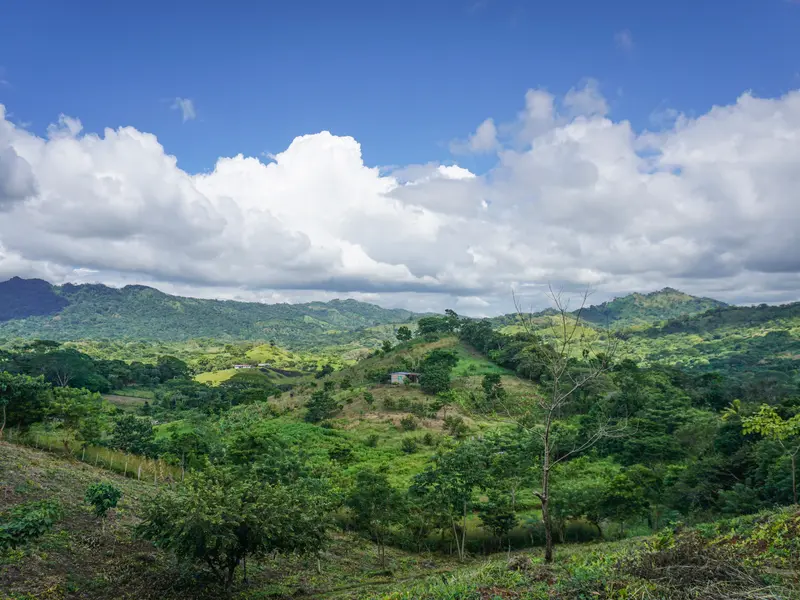Gebrüder Weiss is facilitating the growth of a new corporate forest in Nicaragua. On land previously used for agriculture, 7,000 tree seedlings have been planted in 2023, with 7,000 more planned for 2024. These trees will play a significant role in revitalizing the land in the upcoming years.
In the department of Estelí, located approximately 50 kilometers south of the provincial capital of the same name, lies an area characterized by deep valleys and overgrown hills. Here, farmer Jairo Elizer Arauz Montalvan resides with his family. Thanks to the support from Gebrüder Weiss, the family has been able to establish a new forest comprising 7,000 trees in 2023. On nearby land worked by Corina Arteta Sobalvarro, another 7,000 will be planted during 2024.
Situated at an elevation of 885 meters above sea level and surrounded by imposing mountains, water has always held a pivotal role in this area. The area in which the farming families live serves as an essential source of water for the local population. However, while the city of Estelí boasts a well-developed water system, the situation in the rural areas is notably different. The absence of infrastructure for water storage, treatment, and distribution leads to the people's reliance on natural river flows. More than 100,000 individuals, including Jairo and his family, depend on the watershed for their water supply in a region that presently grapples with the severe consequences of historical deforestation.
Once, this valuable water catchment area was covered by extensively forested areas featuring native tropical tree species. These included the distinct Chilamate trees, which although not towering in height, were characterized by their imposing, curved roots that uniquely shaped the landscape. The trees provided a habitat for diverse animal species and were a crucial source of nutrition due to their nourishing fruits. Unfortunately, even the resilient tree roots succumbed to deforestation.
Excessive grazing, razing of forests for agricultural purposes, and timber deforestation have significantly transformed the landscape. Presently, Estelí is predominantly marked by a patchwork of cattle pastures and tobacco plantations. The impacts of climate change now are more pronounced than ever before. Prolonged droughts during the summer are juxtaposed with extreme floodings during the rainy seasons.
The newly planted trees will now contribute to this ecosystem by revitalizing the landscape. The tree roots will store water from rainy phases, gradually releasing it during dry spells to safeguard the soil from erosion. Additionally, the root system will, over time, restore soil fertility by storing essential minerals. Only a quantity of wood that can regrow quickly will be harvested from the forest, thus ensuring its preservation as a resilient ecosystem in the long term. Moreover, the newly established forests are projected to filter approximately 2,400 tons of CO2 from the atmosphere over the next 50 years.

